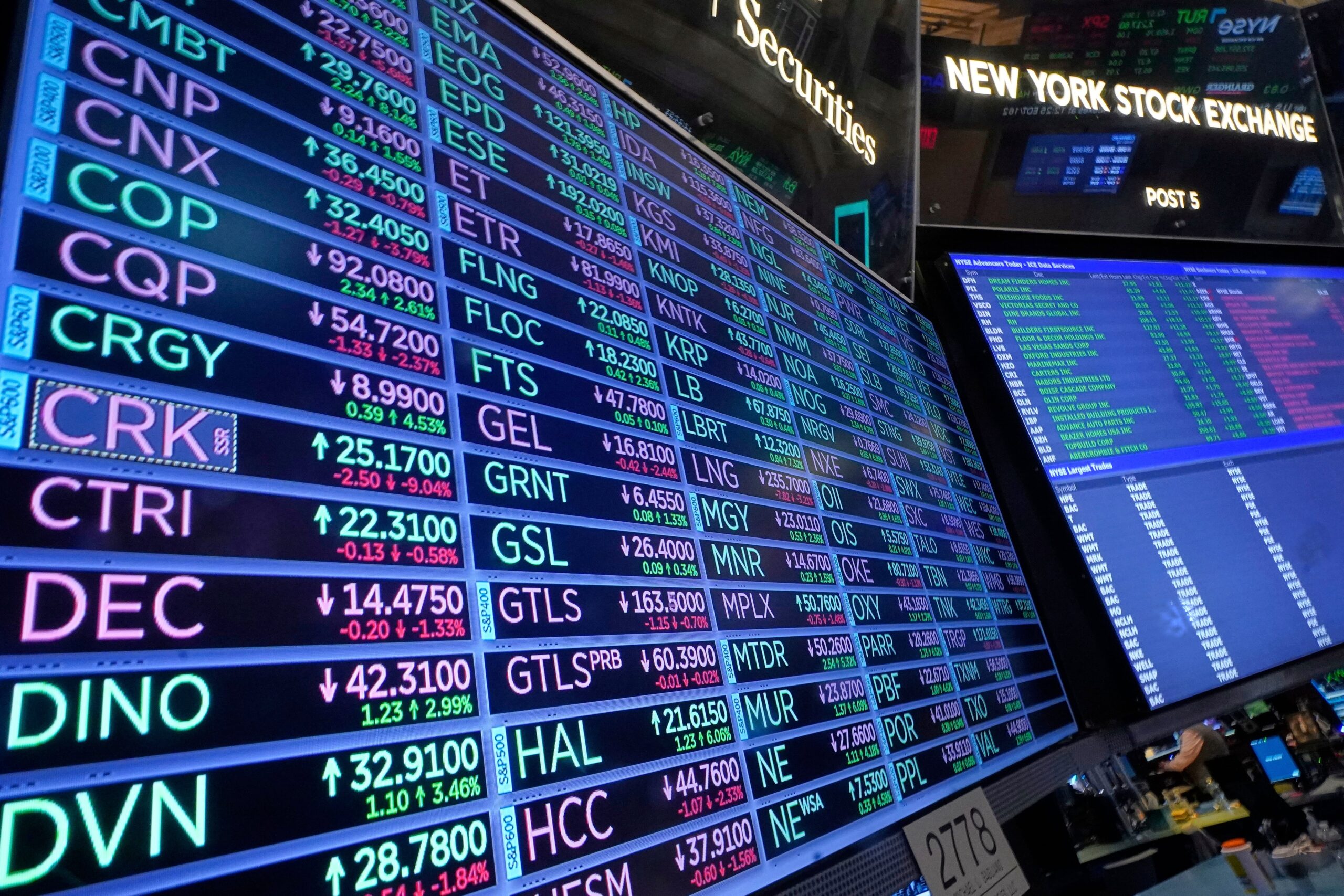Business
European Stocks Decline as Gold Surpasses US$4,000 Mark

European stocks opened lower on Thursday, driven by declines in banking shares and investor caution regarding potential market corrections. Following a surge in Asian stocks fueled by optimism surrounding artificial intelligence, Wall Street had reached record highs in the previous session. However, the ongoing U.S. government shutdown has left traders without crucial economic data, contributing to market unease.
The STOXX 600 index fell by 0.3 percent shortly after the market opened, while London’s FTSE 100 also declined by 0.3 percent, primarily affected by losses at major banks such as HSBC and Lloyds Banking Group. Gains in mining and technology stocks provided some offset. The MSCI World Equity Index remained flat on the day.
Market Sentiment and Future Risks
Investor sentiment appears fragile, as noted by Fiona Cincotta, senior market analyst at City Index. She remarked, “It does feel that we’re lacking substance to any move that we’re seeing, because we’re not getting that data out of the U.S.”
In a significant statement, Jamie Dimon, CEO of JPMorgan Chase, warned of an increased risk of a major correction in the U.S. stock market within the next six months to two years. He attributed this to various factors, including geopolitical tensions and global remilitarization.
Adding to the geopolitical landscape, U.S. President Donald Trump announced a ceasefire and hostage deal between Israel and Hamas late on Wednesday, which may influence market dynamics moving forward.
Currency and Commodity Updates
The demand for safe-haven assets has surged this week, leading to gold prices rising above US$4,000 for the first time. As of the latest reports, gold was trading at US$4,041.29. This surge has been partly driven by a weaker dollar, which saw a slight increase of 0.1 percent to 99.971 but remains down approximately 8.9 percent year-to-date.
The euro continued its downward trend, marking its fourth consecutive day of declines, now at US$1.1615. Meanwhile, the Japanese yen hit an eight-month low at 153 per dollar but showed some recovery, trading at 152.76.
In Japan, an economist close to likely new premier Sanae Takaichi indicated that the yen’s weakness could provide economic benefits, suggesting that rising import costs might be offset by increased fiscal spending.
Oil prices held steady as traders awaited further developments regarding the ceasefire agreement.
International Monetary Fund Managing Director Kristalina Georgieva projected a slight slowdown in global growth for 2025 and 2026, urging caution among investors while acknowledging the resilience of the global economy.
As uncertainty continues to loom, market participants will be closely monitoring developments in both domestic and international arenas to gauge future trends.
-

 Science4 months ago
Science4 months agoToyoake City Proposes Daily Two-Hour Smartphone Use Limit
-

 Top Stories4 months ago
Top Stories4 months agoPedestrian Fatally Injured in Esquimalt Collision on August 14
-

 Health4 months ago
Health4 months agoB.C. Review Reveals Urgent Need for Rare-Disease Drug Reforms
-

 Technology4 months ago
Technology4 months agoDark Adventure Game “Bye Sweet Carole” Set for October Release
-

 World4 months ago
World4 months agoJimmy Lai’s Defense Challenges Charges Under National Security Law
-

 Lifestyle4 months ago
Lifestyle4 months agoVictoria’s Pop-Up Shop Shines Light on B.C.’s Wolf Cull
-

 Technology4 months ago
Technology4 months agoKonami Revives Iconic Metal Gear Solid Delta Ahead of Release
-

 Technology4 months ago
Technology4 months agoApple Expands Self-Service Repair Program to Canada
-

 Technology4 months ago
Technology4 months agoSnapmaker U1 Color 3D Printer Redefines Speed and Sustainability
-

 Technology4 months ago
Technology4 months agoAION Folding Knife: Redefining EDC Design with Premium Materials
-

 Technology4 months ago
Technology4 months agoSolve Today’s Wordle Challenge: Hints and Answer for August 19
-

 Business4 months ago
Business4 months agoGordon Murray Automotive Unveils S1 LM and Le Mans GTR at Monterey









